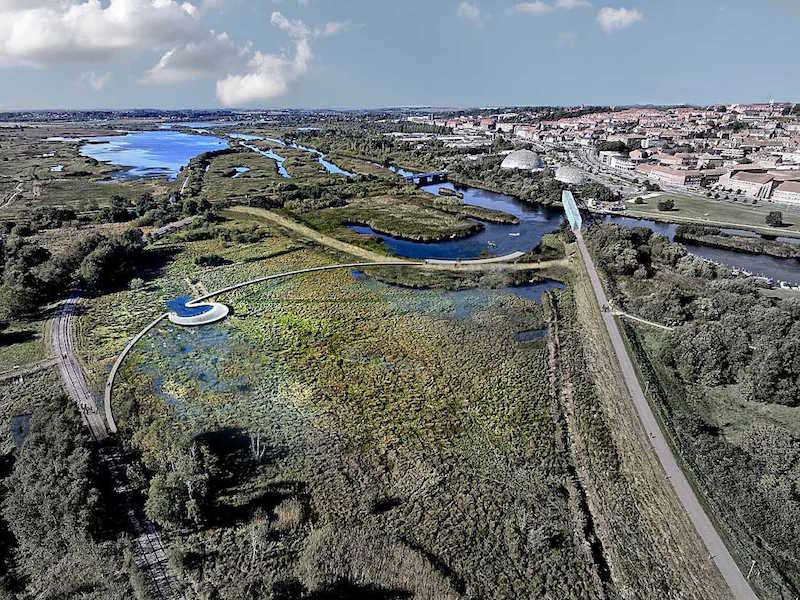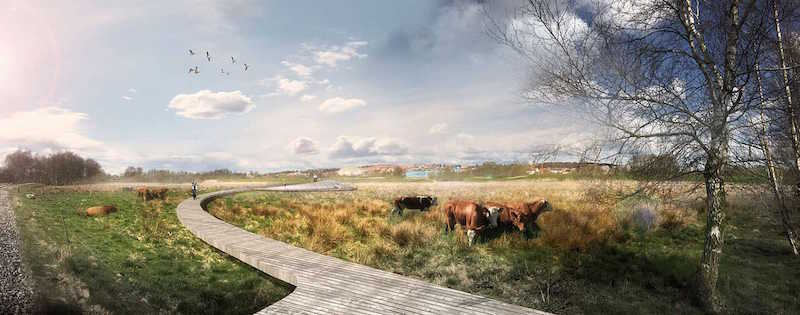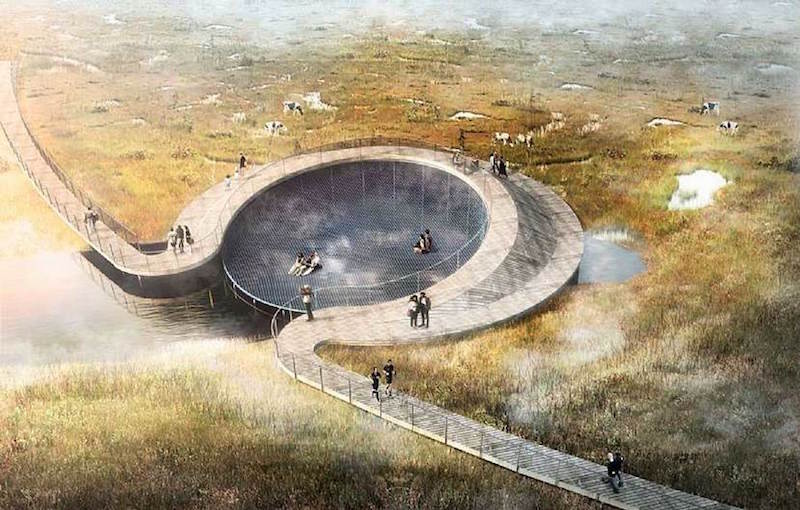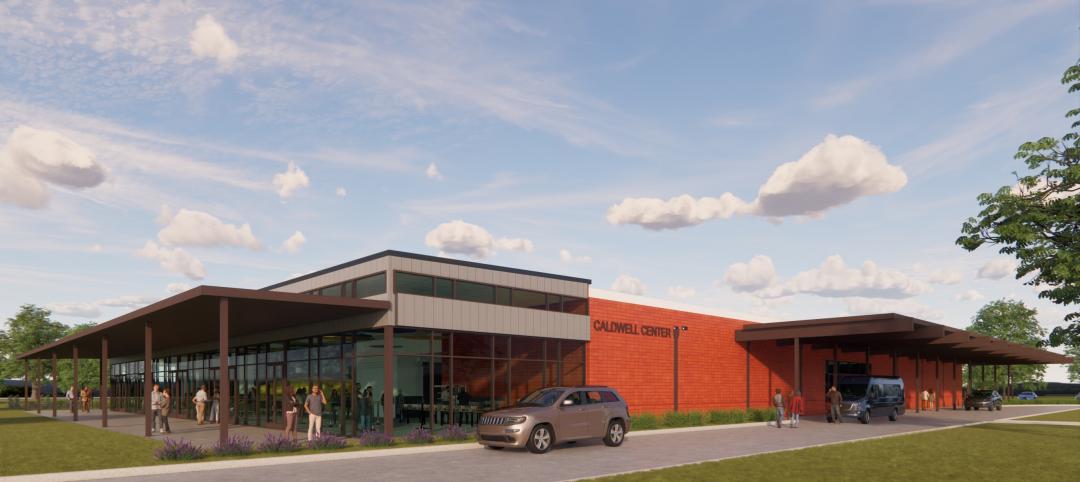C.F. Møller recently won a competition to design a new climate project near Randers, Denmark. Storkeengen, or Stork Meadow, is a new landscape project that creates cloudburst and storm flood protection, strengthens urban nature, and brings the town of Vorup, a suburb of Randers, even closer to the Gudenå River.
The project’s main goal is to resolve the city’s current and future climate challenges by converting Stork Meadow into a public nature park that brings the natural delta along the Gudenå River closer to the center of Randers and its residents. The project’s technical climate protection solutions are based on strengthening the nature value and functionality of the wetland meadow. New cloudburst routes through Vorup lead rainwater from roofs, parking lots, and roads to Stork Meadow.
 Rendering courtesy of C.F. Møller.
Rendering courtesy of C.F. Møller.
The water is then filtered in purification basins designed as natural wetland meadow areas before being deposited into the Gudenå River. A new dyke between Stork Meadow and the Gudenå will ensure good purification and also protect the low-lying parts of Vorup from flooding. Additionally, the dyke will create new pathways between the center of Randers and the nature areas to the west.
 Rendering courtesy of C.F. Møller.
Rendering courtesy of C.F. Møller.
In an effort to enhance the nature experience, activity plateaus will be created to allow people to experience the wet meadow’s habitat up close. These plateaus make it possible to get close to the area’s grazing cattle, enjoy the sunset, or navigate the Gudenå by canoe. Signage with nature information will also be included throughout the project site.
The project will begin construction in fall 2018 and is slated for completion by 2021. C.F. Møller is working with Randers Vandmiljø, Randers Municipality, and Orbicon on the project.
 Rendering courtesy of C.F. Møller.
Rendering courtesy of C.F. Møller.
Related Stories
Resiliency | Oct 29, 2024
Climate change degrades buildings slowly but steadily
While natural disasters such as hurricanes and wildfires can destroy buildings in minutes, other factors exacerbated by climate change degrade buildings more slowly but still cause costly damage.
Resiliency | Oct 17, 2024
U.S. is reducing floodplain development in most areas
The perception that the U.S. has not been able to curb development in flood-prone areas is mostly inaccurate, according to new research from climate adaptation experts. A national survey of floodplain development between 2001 and 2019 found that fewer structures were built in floodplains than might be expected if cities were building at random.
Resiliency | Sep 3, 2024
Phius introduces retrofit standard for more resilient buildings
Phius recently released, REVIVE 2024, a retrofit standard for more resilient buildings. The standard focuses on resilience against grid outages by ensuring structures remain habitable for at least a week during extreme weather events.
Resiliency | Aug 22, 2024
Austin area evacuation center will double as events venue
A new 45,000 sf FEMA-operated evacuation shelter in the Greater Austin metropolitan area will begin construction this fall. The center will be available to house people in the event of a disaster such as a major hurricane and double as an events venue when not needed for emergency shelter.
Curtain Wall | Aug 15, 2024
7 steps to investigating curtain wall leaks
It is common for significant curtain wall leakage to involve multiple variables. Therefore, a comprehensive multi-faceted investigation is required to determine the origin of leakage, according to building enclosure consultants Richard Aeck and John A. Rudisill with Rimkus.
Products and Materials | Jul 31, 2024
Top building products for July 2024
BD+C Editors break down July's top 15 building products, from Façades by Design to Schweiss Doors's Strap Latch bifold door.
Codes and Standards | Jul 22, 2024
New FEMA rules include climate change impacts
FEMA’s new rules governing rebuilding after disasters will take into account the impacts of climate change on future flood risk. For decades, the agency has followed a 100-year floodplain standard—an area that has a 1% chance of flooding in a given year.
Adaptive Reuse | Jun 13, 2024
4 ways to transform old buildings into modern assets
As cities grow, their office inventories remain largely stagnant. Yet despite changes to the market—including the impact of hybrid work—opportunities still exist. Enter: “Midlife Metamorphosis.”
Resiliency | Jun 3, 2024
Houston’s buyout program has prevented flood damage but many more homes at risk
Recent flooding in Houston has increased focus on a 30-year-old program to buy out some of the area’s most vulnerable homes. Storms dropped 23 inches of rain on parts of southeast Texas, leading to thousands of homes being flooded in low-lying neighborhoods around Houston.
Resiliency | May 24, 2024
As temperatures underground rise, so do risks to commercial buildings
Heat created by underground structures is increasing the risk of damage to buildings, recent studies have found. Basements, train tunnels, sewers, and other underground systems are making the ground around them warmer, which causes soil, sand, clay and silt to shift, settle, contract, and expand.

















